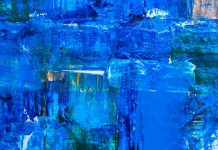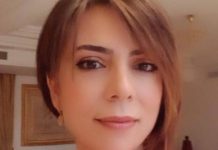Translated into English by Peter Stonelake & Tanja Bakic
The Last Sworn Virgin of Montenegro1
That August dawn, when the Sun
Had just risen into the firmament of the sky
bruised from making love to the sea
In that land which no longer could be hers
In that town which never had been hers
She quietly closed her eyes and dreamt a dream of the Earth.
Once she had been beautiful. That’s what they say.
When she was young. Wavy brown hair,
A radiant face, pearly smile and a gaze
Captured in one moment of her girlhood
When she dressed herself up into something that
she had never been
So as not to listen to the sounds
of her father’s captured tears
Nor the voices of his dreams – dreams
she did not dream.
She was beautiful even as the years passed by–
Years of her stolen beauty, of her stolen nature,
of her stolen past.
She was beautiful even when on that dismal
afternoon she
denied her distant shores and seas
and entered her father’s dreams.
All of those years, dear Stana, you looked where
The sound splinters the light, where the ground
Turns white, and the blood becomes sleepy.
You stared into a life which did not indulge you
Into hard work in the field, into tireless taking care
of home and family,
Into the early morning kindling of fire,
Into the careful tending of sheep,
Into the conscious wearing of men’s clothes and a man’s haircut,
Into the imposed tobacco smoking in taverns,
into the night-time hanging out with men.
With that face of shoreless eyes
With those eyes of frozen tears you have kept inside
the cry you let out long ago
Returning to you like an echo every morning when you wake up
And look at yourself in the cruel mirror. What else did you see?
The colours of your soul left to the flowers?
The light of your eyes you gifted to the winter wind?
The joy of motherhood you consigned to the ashes?
You could have had a new life again.
You could have dreamed new dreams again
Whenever you wished. But you never did.
Do you remember the light of the night candles you lit
When on late autumn evenings the stillness of your soul
Possessed your being, turning louder, screaming?
Was it then that your soul turned white from solitude,
Was it then that you felt the taste of no man’s land
In whose playful schemes you were ensnared
by the roots of lonesomeness
That you chose for yourself?
That August dawn as the Sun
Bid you goodbye on the sea
which you saw then for the first time
and in the sky, which appeared
as you had never dreamed it before,
and when the frozen ground beneath caressed your closed eyes,
I know you dreamt of a new life and a new land
Believing in your own right to that lost happiness.
Some Other River2
There is some other river within this river
Which begins where the rainbow ends –
Receiving nobody’s rays,
Taking nobody’s rain,
Flowing down nobody’s shores.
Ending over there where
The fog begins.
That other river dies and dreams
Other people’s dreams.
Along that river they sail –
where the Moon shortens his thread,
where eyes pursue somebody else’s eyes,
where hands seek somebody else’s hands.
“We must leave” – so they spoke,
“To build our new lives” – so they spoke,
“To forget our past” – so they spoke.
“We sold our cars, properties and houses” – so they spoke.
“We said farewell to our cousins, fathers, mothers” – so they spoke.
“We know not what awaits us out there,
but we had to go” – so they spoke.
They sail along that strange river,
Since they have no more dreams,
Since their hands are full of rain and clouds,
And their mouths full of unswallowed tears.
They sail along that strange river,
For their fingers are full of holes,
For their mornings have turned to nights,
And their nights to dawnless days.
They sail along that strange river,
For they are left with the screams of wounds from the sun’s rays.
“We sold everything. Now we have nothing” – so they spoke.
“Hope is the only thing we have now,
And the new land” – so they spoke.
“My baby will be born soon” – so one mother spoke,
“Very soon now… in that new land.”
Every mile they pass on the river
Is a mile of raised hopes.
The more they sail along the river,
The less words they speak.
I think that this river does not exist
On any geographical map.
Remembering Ohrid
(A Prose Poem)
My eyes could not help but stare at a photograph standing on the wall of the office of the Forum of Slavic Cultures, on Mestni Square in Ljubljana, where I had come for a meeting. Oh, yes. There were so many of them hanging on the wall. But I could not take my eyes off of that particular one. It took me a long time to recall why the church and its surroundings that I saw on the photograph seemed rather familiar to me, as if they came from somewhere close to me. Most of the church was hidden in the evening gloom, but from the far side I could just discern the dark blue waves of the neighbouring lake. One curved wreath of dark hills was inscribed above the waves. Right above it stood another curved, but larger, wreath and of a lighter colour, clad with the burning orange traces of the sunset. The photograph also revealed the shapes of trees in the churchyard, caught in the same twilight shadow. Fresh reflections of orange colour were running down the foothill of the church. This moment in the life of a place of worship, pictured thus, hinted at something mysterious.
All of a sudden it all came back to me. Ohrid. Macedonia. That was it.
That summer I had travelled to Ohrid, from where I would occasionally visit the nearby fishing village of Kaneo to take a look at the Church of St. John the Divine. That’s the church in the photograph. It rests on a rock above the lake. Yes, I remember it well. Taking a stone-bordered pathway through the churchyard I would descend to the rock. There, at the edge of the rock, I would just sit for many hours, allowing my feet to inch down towards the water of the lake, where small fishing boats stood, unevenly interspersed. With one hand I would stroke the leaves of a nearby shrub, listening to how it performed to the secret tune of the wind that caressed my hair and cheeks. I would enjoy the view of the hills opposite, close my eyes and just sit in silence.
There, my eyes miraculously fixed themselves upon one lonesome grave that stood on the ground before the church, and which was neatly decorated by a line of evergreen trees. Under the grave stood a large cross-shaped tomb. Behind the grave was a tree whose blossom turned the view towards the bluish lake and grey sky green. Reading the words inscribed on the cross’s surface, I realised that an Orthodox priest, who had passed away in 1925, was buried there.
It was an August night when I left Ohrid. My last glance at the Church of St. John the Divine was from a small hill close by. The sounds of stillness melted with the echo of the falling dusk, making a reflection on the borderline separating the lake from the sky. A peculiar light was coming out of the church, making me certain that I would never forget it.
Several months later I re-encountered the same church and its same light. But in another place and at another time. After recognising it, the feeling was just as before. Stillness, tranquillity, closed eyes and the long silence. Only the wind was missing. And the lake. Lake Ohrid.
Foot Notes:
1 Stana Cerović (1936–2016) was born in the village of Tušina near Šavnik in Montenegro. She passed away in the small coastal town of Risan at a retirement home. According to Montenegrin patriarchal practice, if the head of a household dies without a male heir, one of his daughters can choose to become his son. At her early age, Stana vowed to her father that she would remain “his only surviving son” – she would never get married, nor have children, but she would take care of her mother and sisters. Due to her illness, towards the end of her life, she moved to the coastal town of Risan to a retirement home. With her death, on 1 August 2016, this archaic practice was extinguished from Montenegro.
2 This poem is dedicated to the great wave of migration that occurred in 2015 in Montenegro, from where people moved to the EU, mainly to Germany. Both on a poetic and visual level, the metaphor for that migration is given in the poem in the form of the river.
About the author:
Tanja Bakić, born in 1981 in Montenegro, is the author of five highly-praised poetry collections, her debut being published when she was only 15, and the last one, Sjeme i druge pjesme (The Seed and Other Poems), in 2013. She is also a translator, holds an MA in English language and literature, writes as a music and literary critic. Her poems have been translated into fifteen foreign languages, presented at festivals abroad, published in international anthologies, and she has been awarded fellowships several times, one of these being the Central European Initiative Fellowship for the year 2016.
Peter Stonelake was born in London in 1975. He graduated in 1998 with a Masters in Civil Engineering. He completed in 2001 an Institute of Linguists diploma in Russian language, and was duly accepted as an Associate of the Chartered Institute of Linguists. At the beginning of 2003, he left the UK to take up a volunteer role working for a Christian student association in Belgrade, Serbia. In 2005, Peter took up the post of teaching assistant at the University of Montenegro, in the Department of English Language and Literature. Upon finishing working at the university, he also started translating texts from Serbian/Montenegrin into English, including short stories and poetry, as well as legal documents and academic papers.












